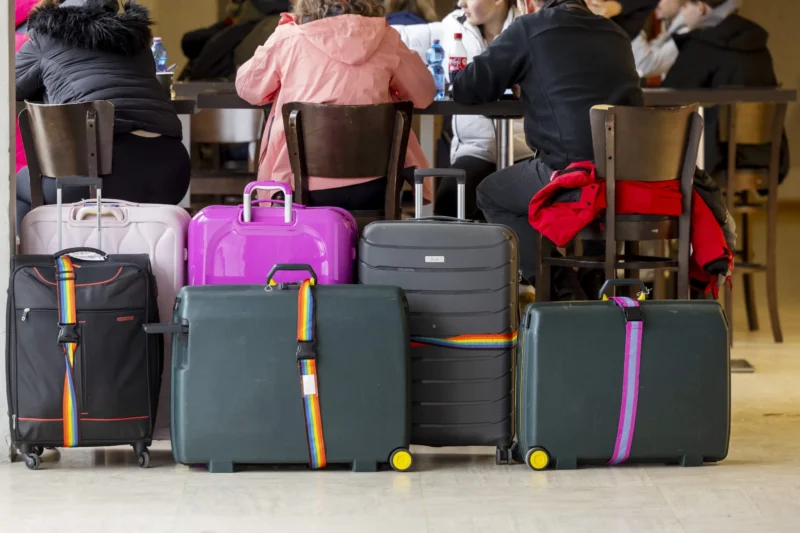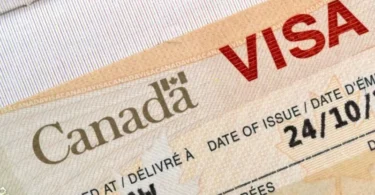Say bye to free overhead cabin bags. The European Union is moving forward with contentious suggestions that could permit airlines to charge passengers for hand luggage. This adjustment is already triggering a backlash from client groups and usual flyers.
EU transport ministers approved new air passenger rights laws on June 6, ensuring passengers can take just one small item, such as a handbag or laptop case, under the seat. Any additional cabin bags, including those stored in the overhead cabin, may incur an extra charge.
Table of Contents
What Is Modifying For Hand Luggage
Below is what the suggested changes imply in practical conditions:
- Free: A small under-seat bag for each passenger.
- Prospectively charged: Cabin bags are automatically permitted in overhead bins.
- Not protected: No assurance of free space for rolling suitcases or huge backpacks in the cabin.
Airlines would possess the lawful freedom to set their charges, implying budget carriers could include yet another layer of charges on top of already distinguished ticket costs.
Why It Is Important To Travelers
For many passengers, mostly those traveling with hand luggage only to avoid baggage inspection charges, this modification could imply increased travel expenses and reduced flexibility.
In recent years, several budget airlines have started charging passengers for overhead cabin luggage unless they purchase a priority boarding upgrade. The EU’s suggested laws could formalize and extend this exercise across all carriers in the loc.
Travel tip: When packing, opt for soft, compact, under-seat luggage and verify your airline’s baggage guidelines before booking your flight.
Client Groups Push Back
The action drew robust criticism from BEUC, the European Consumer Organization, which described the handbag as a significant rollback of major passenger liberties.
Client groups filed complaints with the European Commission in 2024, arguing that airlines are required to address hand luggage as an essential aspect of air travel, not an optional extra.
Opposition From Major EU Nations
Not all EU citizens approve of this. Germany, Slovenia, Portugal, and Spain have opposed the carry-on bag clause, raising concerns over client impact and consistency with court orders.
Regardless of resistance, the majority of EU transport ministers supported the suggestion as part of a broader update to passenger securities, which represents the first significant attempt at change in more than 10 years.
Should you find this piece engaging, we kindly invite you to explore the wealth of content in our other articles:
Stricter Laws On Delays, Rerouting, And Passenger Reward
Regardless of the hand luggage controversy, the new EU passenger rights structure includes many significant enhancements.
- Rerouting duties: Airlines are required to reroute passengers at the earliest chance, even via other carriers or various modes of transport.
- Self-scheduled options: If rerouting is not provided within three hours, passengers can schedule their trips and assert up to 400 percent of their original ticket expenses.
- New payment threshold for delays above four hours or short or intra-EU flights and delays surpassing six hours on long haul flights.
- Housing and meals: Airlines are currently detailedly needed to provide food, drinks, and accommodation during delays. If not given, passengers can organize these and assert payment.
Liquid Limitations Could Be Simplified
As debates concerning carry-on guidelines intensify, the EU is also reviewing outdated regulations on liquids in hand luggage. Most airports in the United Kingdom and the European Union have started deploying next-generation scanners, which permit passengers to carry liquids up to 2L in their handbags without needing to remove them.
The EU anticipates the total rollout to take time. However, the adjustment could hasten the implementation of safety lines, even as carry-on luggage charges threaten to increase travel expenses.
What to know: The 100ml law is still in effect in several EU airports; therefore, review local guidelines before packing.
New Size Caps For Hand Luggage
Outside the above-stated modifications, the EU is also planning to standardize cabin luggage laws: one carry-on bag (max. 55x40x20 cm, 10 kg) and one personal item (max. 40x30x15 cm) that fits under the seat. This aims to ease air travel and reduce confusion for passengers across airlines.
What Occurs Next?
The suggestions will currently be debated in the European Parliament, which is required to take on its role. If endorsed, the changes will proceed to negotiations with member nations and the European Commission.
Client groups are concerned about the fast-tracked duration, which restricts debate and lessens the authorization procedure. A final consensus is expected to be reached by the end of 2025.
Hand Luggage To Cost You Extra Soon
The EU’s air passenger rights changes promise more rewards and clearer laws; however, this comes at the prospective expense of free hand luggage. If the proposal becomes law, it may reform the way European travelers arrange their luggage plans and schedule flights.






